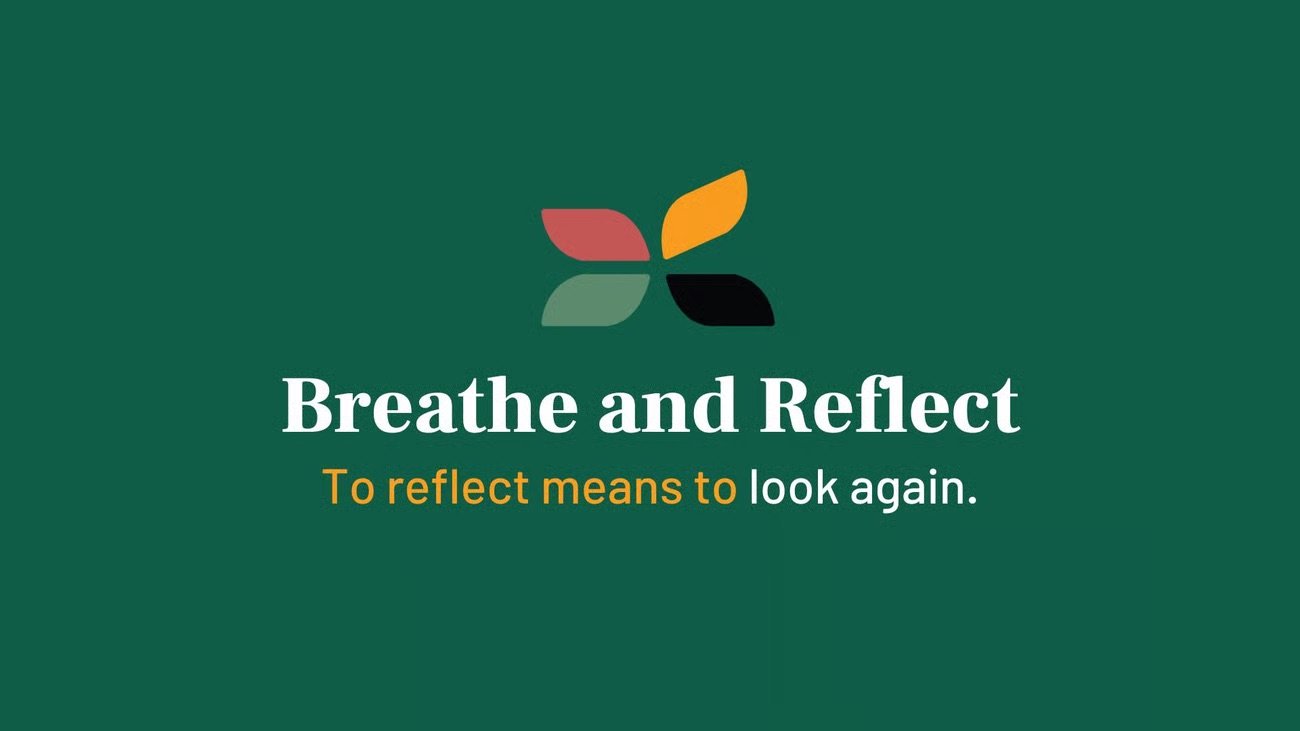Learning to Press Pause
It’s my birthday season ☀️, and I’m pretty excited! I love how my special day lands right in the middle of summer because it’s a natural time in my work to take a break.
This is also the halfway point in the calendar year, so it feels like a good time to reflect on what I’ve learned and where I’m going.
Lately, I’ve reflected with a few friends about how proud I am of myself for learning how to pause more. I see pausing as different than resting (more on that later).
For me, pausing is about taking a breath, a minute, a day, or a week… before moving forward.
You know that I believe justice work is mostly about relationship-building. All of our issue campaigns, policy work, and workplace culture shifts require that people trust one another and maintain healthy ties.
One of the ways my own relationships have suffered in the past is that I moved forward in my work and personal plans quickly… without checking in with myself. I tend to want to just get it done or keep it moving. So learning to pause and check in with how I am feeling, to survey my options, and get a little advice before taking my next steps has been a critical lesson for me. This has been particularly important learning for me during this last trip around the sun.
Allow me to share 3 big ways I’m learning how to pause to show up better for myself and for others.
#1. Pausing before I react.
Before I let a negative review or comment on a feedback form eat me up, I try to stop the direction of thoughts that race towards self-doubt and figure out if the comment is really about my work… or if it’s about the person writing the comment.
It’s usually easy to differentiate. If the comment is about them, it’s usually brief and insulting. If it is about me or the work I do, I read it carefully or ask more questions to figure out what I can learn.
The criticism may not feel good, but I’m able to depersonalize it and use it to help Freedom Lifted get better.
This is where pausing to take a breath comes into play.
People in my workshops often chuckle as I continually ask them to take deep breaths before we move to the next thing. What they don’t realize is that this breath is really for me!
Taking a breath requires a pause, and this pause helps me digest what just happened, prepare to change subjects, and regulate before wigging out.
Picture of my dog Winnie, pausing between barking.
#2. Pausing before I respond.
In heated conversations about identity, power, and justice, pausing before we respond is even more critical. We might feel at ease and be comfortable with the flow of conversation. But others might need more time to process. Remember that the scope and weight of these discussions can be A LOT.
Here’s what I’ve been considering as I think through how to pause, then respond:
How can I pause more within difficult conversations, to let others think and respond when they are ready?
How can I request more pauses in discussions so that I can process, then offer a response that is both honest and useful?
Here’s an example: Shortly after a recent workshop, one of the participants shared privately that sometimes they feel “warm” within these conversations, because they’re trying to figure out what’s just been said. They didn’t want to act while they were feeling that warmth, but knew they needed to just sit for a minute before saying anything. Then the time was up.
I completely relate to this feeling. It has made me think differently about how to set up expectations for our breakout rooms and create more space and time for processing.
#3. Pausing before I make a decision.
I’m currently learning that although a few things require urgent, quick action, most things do not.
It goes without saying (but I’ll remind us anyway!): Important decisions that involve other people and have long-term effects require time to think. Yet, I’ve had to learn that I can take time to think about seemingly smaller decisions that, seemingly, only affect me.
For example, if I’m personally being asked to commit to something (that requires even a small amount of time and energy), I often feel like I have to give an immediate answer. However, I really need to pause first, particularly because I have not (yet) learned how to say a quick ‘no.’
When I combine my difficulty with saying ‘no’ with the feeling of needing to give someone an immediate answer, I end up overcommitted. And when I’m overcommitted, I feel sad, tired, resentful, or all three.
Unfortunately, I’ve spent a lot of time being overcommitted. Learning to pause before giving someone a decision (and learning to say ‘no’ more quickly) has helped me create time to pursue my own ideas and projects and to spend time doing what is most important to me.
(A great resource for this is one of my all-time favorite books, Essentialism by Greg McKoewen. It’s an important guide for anyone who’s ready to set out on the quest to focus only on what’s most important, as it relates to our goals.)
This is the slide we use in our workshops after people come out of breakout sessions.
Importantly, I believe that pausing does not mean stopping altogether.
It’s not about opting out of responding and decision-making. Rather, it’s about creating speed bumps in your life and in your work.
For me, this looks like taking a moment to pump the brakes and proceed slowly, so I can pay attention to conditions and my surroundings first.
Wishing you deliberate slowness,
Mia Henry
P.S. If you are a hip hop fan around my age, you might appreciate this musical tie-in.



